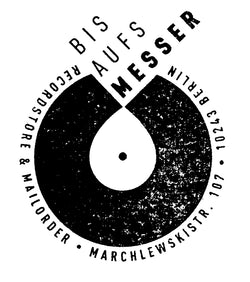After the release of her powerhouse 2018 debut Haru to Shura, Haru Nemuri quickly became a pretty important artist for a lot of people. Bursting onto the international stage from out of nowhere, her noisey synth-raps played out as a reconfiguration of J-pop that held unexpected value for many who would otherwise have written off that scene. Haru’s sound is adamantly Japanese while bulldozing many of the tropes that frequently turn people off from the country’s brighter music, with infectious energy and palpable emotional sincerity that give it a good deal of staying power. Backed up by a series of roof-raising shows across Europe, Haru to Shura’s honeymoon period was extensive and glorious, so much so that Haru’s self-descriptions as an indestructible force of loud, maximalist love seemed right on the money. But, as always, there’s a flip side: whenever an artist seems to ride on sunshine, the calibre of expectations for their next move tend to get a little skiffy. Haru’s ever-expanding public platform has been so overwhelmingly positive that I felt a little guilty about harbouring misgivings over whether she could keep up her golden streak. This wasn’t helped by how satisfying Haru to Shura felt across as a standalone package; that record’s sound didn’t seem to require further unpacking, and yet Haru has clearly been so content performing it ever since that it would be unreasonable to expect much of a departure. All things considered, there were a good deal of reasons for excitement at the prospect of a follow-up, many of which also served as ample basis for cocked eyebrows.
After the release of her powerhouse 2018 debut Haru to Shura, Haru Nemuri quickly became a pretty important artist for a lot of people. Bursting onto the international stage from out of nowhere, her noisey synth-raps played out as a reconfiguration of J-pop that held unexpected value for many who would otherwise have written off that scene. Haru’s sound is adamantly Japanese while bulldozing many of the tropes that frequently turn people off from the country’s brighter music, with infectious energy and palpable emotional sincerity that give it a good deal of staying power. Backed up by a series of roof-raising shows across Europe, Haru to Shura’s honeymoon period was extensive and glorious, so much so that Haru’s self-descriptions as an indestructible force of loud, maximalist love seemed right on the money. But, as always, there’s a flip side: whenever an artist seems to ride on sunshine, the calibre of expectations for their next move tend to get a little skiffy. Haru’s ever-expanding public platform has been so overwhelmingly positive that I felt a little guilty about harbouring misgivings over whether she could keep up her golden streak. This wasn’t helped by how satisfying Haru to Shura felt across as a standalone package; that record’s sound didn’t seem to require further unpacking, and yet Haru has clearly been so content performing it ever since that it would be unreasonable to expect much of a departure. All things considered, there were a good deal of reasons for excitement at the prospect of a follow-up, many of which also served as ample basis for cocked eyebrows.

